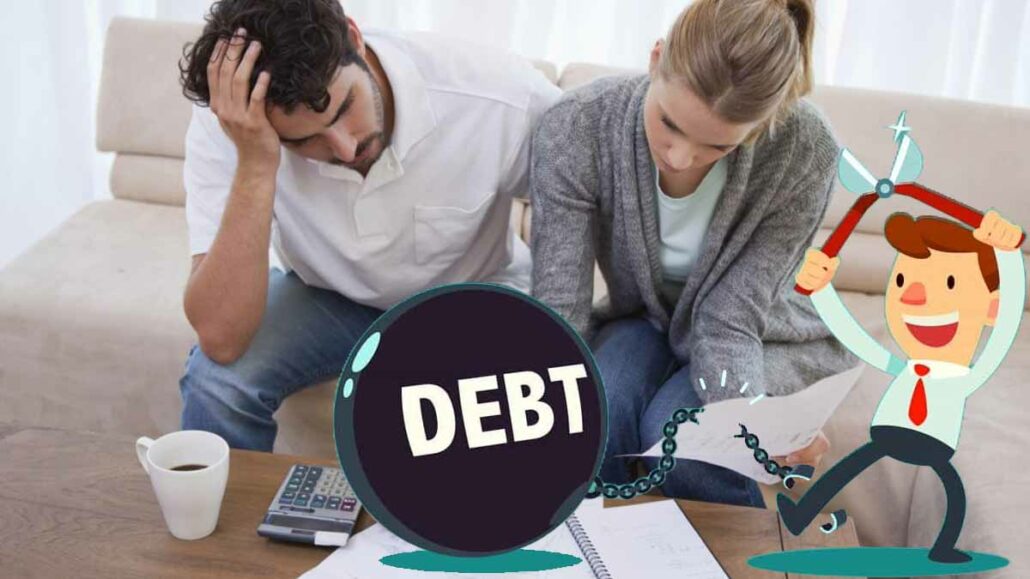Struggling with Debt? We can help. Explore our debt relief options and find a solution to get out of debt and achieve financial freedom.

Debt relief can be a lifeline for people struggling to manage their financial obligations. It encompasses a variety of strategies aimed at reducing the total amount owed, lowering interest rates, or extending repayment periods. These strategies can help you become debt-free faster and ease the burden of overwhelming payments.
There are several paths to debt relief, each with its advantages and drawbacks. It’s important to consider your specific situation and goals when choosing the best course of action. Some common options include debt management plans, debt consolidation loans, and debt settlement programs.
Understanding Debt Relief
Debt relief encompasses strategies to reduce or eliminate your debt obligations. This can involve:
- Debt consolidation: Combining multiple debts into a single loan with a lower interest rate, simplifying repayment.
- Debt management plan: Working with a credit counseling agency to negotiate reduced interest rates and create a manageable repayment plan.
- Debt settlement: Negotiating with creditors to settle your debts for less than the full amount owed (typically involves stopping payments to creditors upfront).
- Bankruptcy: A legal process discharging some or all of your debts, but with significant consequences.
Choosing the Right Debt Relief Option
The best debt relief solution depends on your specific financial situation, debt amount, and creditworthiness. Here’s a breakdown to help you decide:
- Debt consolidation: Ideal for those with good credit and manageable debt seeking a lower interest rate and streamlined repayment.
- Debt management plan: Beneficial for individuals with fair credit and struggling with multiple unsecured debts (credit cards, medical bills).
- Debt settlement: An option for those with significant unsecured debt and facing financial hardship, but be aware of the impact on your credit score.
- Bankruptcy: A last resort for individuals facing overwhelming debt and lacking the ability to repay. Consult a bankruptcy attorney to understand the long-term implications.
Remember: It’s crucial to research and compare options before choosing a debt relief solution.
Taking Charge of Your Debt
Debt relief can be a powerful tool to regain financial freedom. Here are some additional tips:
- Create a budget: Track your income and expenses to identify areas to cut back and free up funds for debt repayment.
- Increase your income: Explore ways to boost your income, such as a side hustle or negotiating a raise.
- Seek professional help: Consider consulting a credit counselor for personalized guidance and creating a debt repayment plan.
Remember, you can overcome debt. By educating yourself on debt relief options and taking action, you’ll be well on your way to financial stability.
Is Debt Relief Right for You?
Debt relief can be a powerful tool, but it’s not a one-size-fits-all solution. Here’s a breakdown to help you decide if it’s the right move for you:
Consider Debt Relief If:
- You’re struggling to make minimum payments on your debts.
- You’ve tried budgeting and cutting back on expenses, but you’re still overwhelmed.
- You’re facing high-interest debt that’s accruing faster than you can pay it down.
- You’re considering bankruptcy as a last resort.
Debt Relief Might Not Be Ideal If:
- You have a good handle on your finances and are making steady progress on your debt.
- You have good credit and don’t want to risk damaging it.
- You’re uncomfortable with the idea of negotiating with creditors or stopping payments.
Before Diving In:
- Talk to a credit counselor: A credit counselor can assess your situation and recommend the best debt relief option for you. They can also help you create a budget and develop a plan to manage your debt.
- Understand the impact on your credit: Most forms of debt relief, except credit counseling, will hurt your credit score for several years.
- Beware of scams: There are unfortunately companies that prey on people struggling with debt. Make sure you research any debt relief company before working with them.
FAQs on Debt Relief
What are the risks of debt settlement?
Debt settlement companies often charge high fees, and stopping payments can negatively impact your credit score for several years.
Can I negotiate debt relief myself?
You can attempt to negotiate with creditors directly, but credit counseling agencies or debt settlement companies may have more leverage due to their experience.
How can I improve my credit score after debt relief?
Practice responsible credit card use, maintain on-time payments for all remaining debts, and consider credit builder loans to rebuild your credit history.
Are there free debt relief options?
Non-profit credit counseling agencies offer free or low-cost credit counseling and debt management plan services.
How long does debt relief take?
The timeframe depends on the chosen method. DMPs and consolidation loans typically take 3-5 years. Debt settlement can take longer, and bankruptcy has a strict timeline.
What are the scams to watch out for?
Beware of companies that guarantee quick debt elimination, charge upfront fees before settling debts, or pressure you into signing up on the spot.
How can I improve my credit score after debt relief?
Make timely payments on all your remaining debts, maintain low credit card balances, and avoid taking on new debt.
Conclusion
Debt relief can be a powerful tool to regain control of your finances. By understanding your options, choosing the right strategy, and seeking professional help when needed, you can overcome debt and achieve financial freedom.

